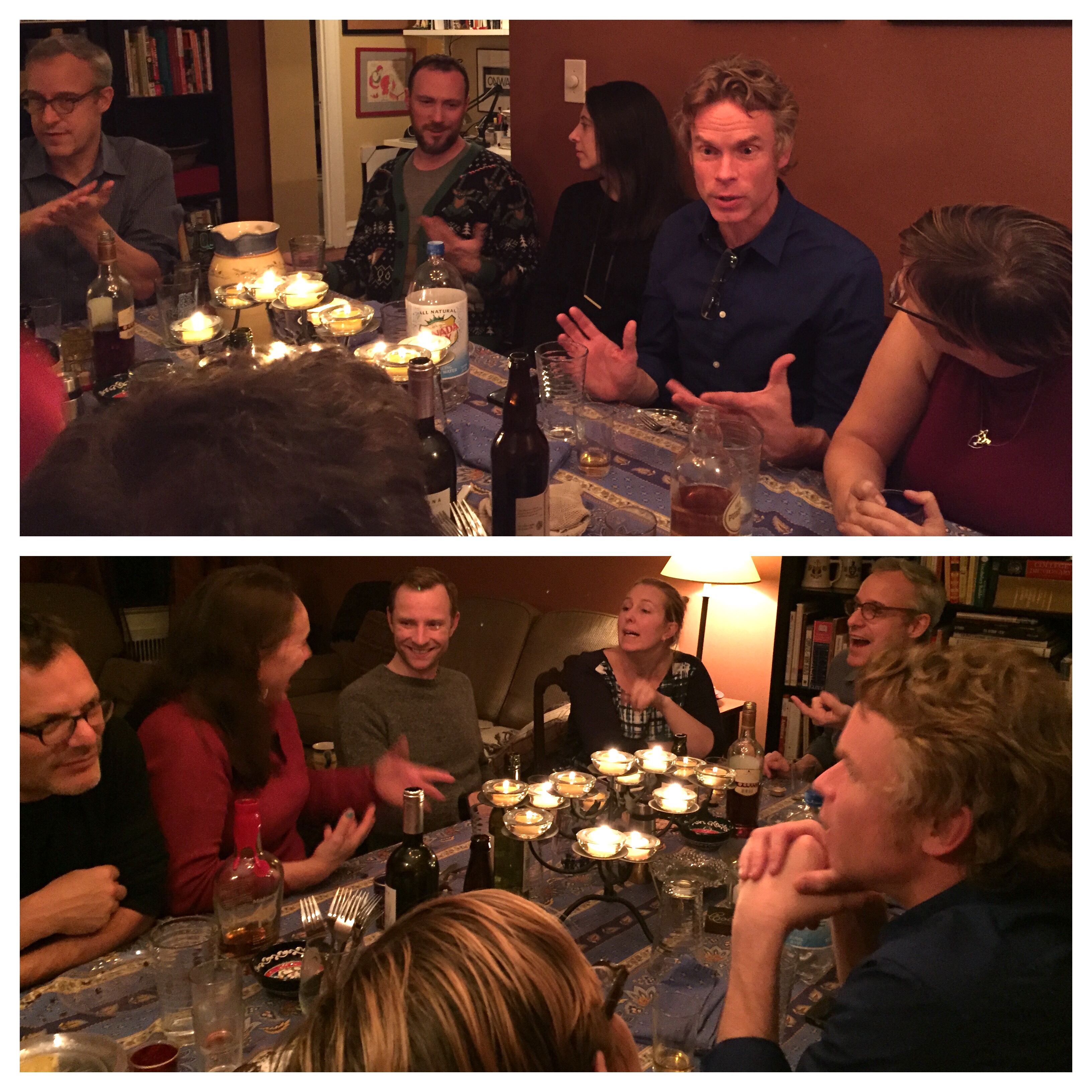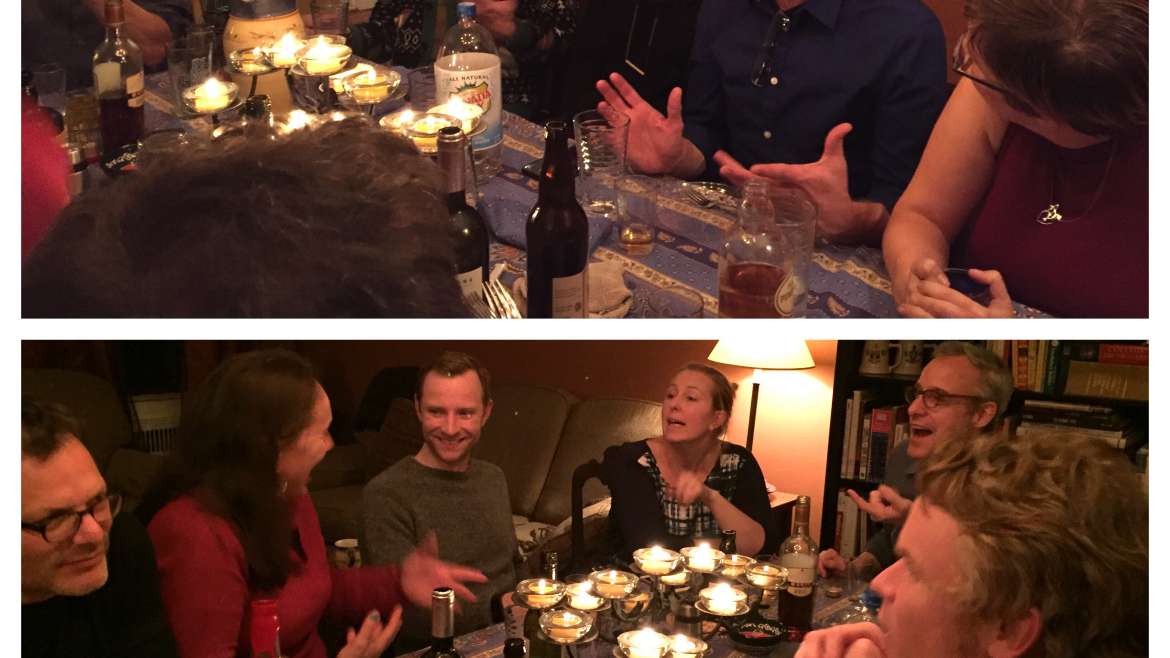If you’re making new year’s resolutions, I’d like to recommend you start 2017 with a different ambition than the typical “lose 10 pounds” or “quit smoking.”
Make this the year you value your relationships.
Why? A New York Times article headlined, “How Social Isolation Is Killing Us,” said in part:
Social isolation is a growing epidemic — one that’s increasingly recognized as having dire physical, mental and emotional consequences. Since the 1980s, the percentage of American adults who say they’re lonely has doubled from 20 percent to 40 percent.
About one-third of Americans older than 65 now live alone, and half of those over 85 do. People in poorer health — especially those with mood disorders like anxiety and depression — are more likely to feel lonely. Those without a college education are the least likely to have someone they can talk to about important personal matters.
A wave of new research suggests social separation is bad for us. Individuals with less social connection have disrupted sleep patterns, altered immune systems, more inflammation and higher levels of stress hormones.One recent study found that isolation increases the risk of heart disease by 29 percent and stroke by 32 percent. Another analysis that pooled data from 70 studies and 3.4 million people found that socially isolated individuals had a 30 percent higher risk of dying in the next seven years, and that this effect was largest in middle age.Loneliness can accelerate cognitive decline in older adults, and isolated individuals are twice as likely to die prematurely as those with more robust social interactions. These effects start early: Socially isolated children have significantly poorer health 20 years later, even after controlling for other factors.
All told, loneliness is as important a risk factor for early death as obesity and smoking.
If you need more convincing, I suggest you read the full article by Dhruv Khullar, a resident physician at Massachusetts General Hospital and Harvard Medical School.
How to get started? Consider throwing a party

I love hosting parties, from intimate dinner parties to jam-packed cocktail parties. When people come to our parties, they sometimes say wistfully, “You’re so good at this. I wish I knew how to throw a party like this.”
- Party pointers from a hostess who learned later in life
- Pointers on hosting simple weekday suppers
- How my 40th birthday party changed my life OR why living room shows are amazing
Become a regular at a bar or coffee shop near you

Socializing at home isn’t the only option, of course. You can enjoy a bar, cafe, coffee shop or other gathering place near you.
Ray Oldenburg wrote a book called The Great Good Place in 1989 that spoke of the “third place” — someplace that’s not home and not work, but another spot where you connect with your community. Going to your third place isn’t just about scheduling a date to meet people you already know but about chatting with whoever’s there.
That means putting down your phone, making eye contact and opening yourself up to strangers.
In a recent interview in Imbibe magazine, Oldenburg said:
The development of the individual depends on meeting people from different walks of life, and getting to know them. That’s good for the individual, and it’s good for the community. Coffee shops are great, and bars are great — they offer an edge because of what you consume, and you can relax and warm up to other people.
We feel fortunate to have fallen deeply in love with a cocktail bar a block from our apartment. It’s a place where we go to celebrate as well as to sulk or mourn, and where we feel welcomed and cared for, more like family than customers.
It’s the first time in our lives we truly feel like regulars someplace. It took trial and error to find the right place and to connect beyond a simple business transaction.
Here’s some of what worked for us in finding our local:
- We went to several places in our neighborhood early in the evening on weeknights
- We sat at the bar and talked with bartenders, asking them what they like to make and what’s good on the menu
- When we found a bartender we liked, we’d ask his or her name and when he or she works. For us, a good bar experience is about how we’re treated and that varies greatly from person to person so we don’t just go to a place, we seek out an individual who gives us a good experience.
My husband, John Tebeau, is writing a book about 50 great New York bars, not places with the very best cocktails or the hippest places, but bars that are beloved gathering places.
Visiting dozens of bars to scout them for his book has given us copious practice engaging with barkeeps and regulars, and as someone who used to find sitting at the bar intimidating, I can tell you that the more you do it, the easier it gets. I’ve learned to read the body language of patrons open to chatting and to gauge when a bartender has time to socialize versus needing to focus on the task at hand. Like hosting parties, it gets easier the more you do it.
Bring a social element to something you’d do anyway
Ari Weinzweig, co-founder of Ann Arbor institution Zingerman’s, taught a webinar on time management last year that was beautifully philosophical — it wasn’t about shoehorning more productivity into each day but about living well by prioritizing how we spend our time.
One of the practical pointers Ari gave was to combine priorities so he can accomplish more things he values simultaneously.
For example, if you want to exercise and you want to socialize, work out with a friend. My husband, John, had a standing racquetball date with a co-worker twice a week when we lived in Ann Arbor. That’s part of why we’re still friends with his racquetball partner, Bob, two decades later.
I once read about two moms who swapped helping each other clean. They’d both spend an hour cleaning one family’s house, talking as they did it, then they’d switch to the other house. It turned a grudge task into bonding time.
What do you do — or what would you like to do — that could work as a social activity?
Make it a priority to show people you love them
I hear a lot of people, especially in go-go-go New York City, saying they just don’t have time to socialize. They work long hours, wrapped in a long commute on each side, then maybe they have the demands of parenting waiting at home.
I get that you might already feel you don’t have enough hours in the day, and squeezing in a brunch date sounds more stressful than relaxing.
But if you value your relationships, can you prioritize maintaining those connections enough to make time? Is there something you’re doing that you could ditch to make room for friendships, or could you make better use of downtime? Can you combine socializing with another activity, like Ari suggests?
I have one friend with a high powered job who leaves substantive voicemails, so I feel connected even if we didn’t get to chat. Another friend who travels a lot sends thoughtful texts about something happening on the trip or something that reminded him of me. A successful business owner friend routinely leaves cheerful comments on my Facebook posts. They’ve found ways to fit connection into their busy lives.
John and I spend a few hours every couple of weekends calling and writing people we love. We send postcards and texts as we drink our coffee. We value this enough that we schedule it in our shared Google calendar. We don’t just wait for spare time, we prioritize this commitment to connection.


9 Comments
psitsperi
This was really interesting, and I’ll save some tips from here!
Colleen Newvine Tebeau
I’d love to hear how it goes!
John Tebeau
Excellent post, Colleen. I love hosting at home! It beats going out because you control the environment, and you can lollygag all night long… with your own playlist and no enormous bill to pay at the end of the evening. Win-win-win.
Leave a reply